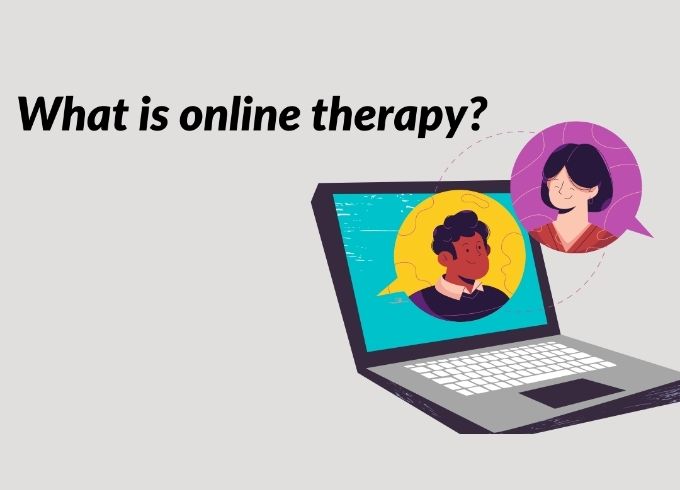Employing Compassion: The Healing Benefits of Empathy Therapy
Empathic therapy is being recognized as a revolutionary approach to emotional healing, creating a nurturing space for people to explore their feelings and experiences. In a world that frequently encourages detachment and emotional suppression, empath therapy recognizes the value of connection and understanding. This distinct therapeutic practice is centered on the concept of empathetic understanding, allowing therapists to attune to their clients’ emotional states and support healing through compassionate dialogue.
The advantages of empath therapy are profound, offering individuals with the possibility to be listened to and affirmed in a way that is often absent in their daily routines. By cultivating a meaningful sense of attachment, this therapeutic method not only improves self-awareness but also encourages emotional resilience. As individuals engage in this therapeutic journey, they discover the potential for healing of empathy, understanding how to navigate their emotional landscape with more clarity and self-assurance.
Comprehending Empath Counseling

Empathy therapy is a healing approach that leverages the innate talents of sensitive individuals to feel and understand the emotions of people deeply. It acknowledges that empaths often experience increased sensitivities, permitting them to pick up on the feelings of those around them. This therapy seeks to channel these sensitivities, changing them into tools for development and psychological recovery. By guiding individuals through their emotional landscapes, empath therapy nurtures a profound bond between the counselor and client, creating a secure space for healing.
In this therapeutic process, empaths learn to manage their sensitivities and to establish boundaries that defend their emotional health. The therapist works with the patient to recognize patterns in their emotional responses and helps them handle their feelings without feeling overwhelmed. By leveraging Therapy Helpers , the therapy can lead to better emotional regulation and an awareness of how to employ their sensitivity as an strength rather than a burden.
Additionally, empath therapy not only helps individuals who consider themselves empaths but also individuals who desire to comprehend and interact with greater efficacy with them. It fosters understanding and kindness within connections, building deeper bonds and minimizing miscommunication. As patients learn to communicate their emotions and stories, the therapy cultivates a encouraging atmosphere where psychological recovery can flourish, underscoring the significance of shared understanding and connection in the process of healing.
The Healing Process
Empath therapy emphasizes the profound connection between the therapist and the patient, creating a nurturing environment where healing can thrive. This special approach allows therapists to tap into their innate abilities, providing insight that can be transformative for clients. The process often initiates with establishing trust, where people feel recognized, listened to, and validated in their journeys, paving the way for deeper emotional exploration.
As the sessions progress, clients often report relief as they express their emotions in a secure space. Empath therapy facilitates the expression of suppressed emotions, allowing participants to acknowledge and process their pain without criticism. This emotional release can lead to notable breakthroughs, fostering self-acceptance and facilitating a journey toward healing and wholeness.
In addition to emotional healing, empath therapy also supports a greater understanding of oneself and one's connections with others. Clients often leave sessions feeling freer, more capable, and equipped with strategies to navigate their emotional landscapes. The healing process is not just about tackling immediate challenges but also about nurturing resilience and building a deeper sense of empathy for oneself and others.
Practical Advantages of Empath Therapy
Empathic therapy provides individuals a distinct chance to connect on a deeper emotional level with their therapist, enabling for a further tailored healing journey. This connection creates a secure space where clients feel understood and validated, resulting in substantial emotional relief. As clients express their feelings and experiences, the empathic responses from the therapist can help alleviate feelings of loneliness and isolation, promoting a sense of belonging and acceptance.
A notable benefit of empath therapy is its ability to enhance self-awareness and self-acceptance. By engaging in empath therapy, clients often discover buried emotions and unresolved issues that they may not have been fully aware of. This introspective journey, guided by the therapist's empathetic insights, encourages individuals to confront and work through these feelings, facilitating personal growth and a richer understanding of themselves. As clients become more attuned to their emotions, they are more equipped to manage their responses to life's challenges.
Finally, empath therapy can lead to improved relational dynamics within personal and professional settings. Individuals who experience this form of therapy often learn effective communication and emotional regulation skills, which can improve their interactions with others. By practicing empathy in their daily lives, clients may nurture stronger, deeper meaningful connections with family, friends, and colleagues. This ripple effect not only benefits the individual but also fosters a greater compassionate environment in their neighborhoods.